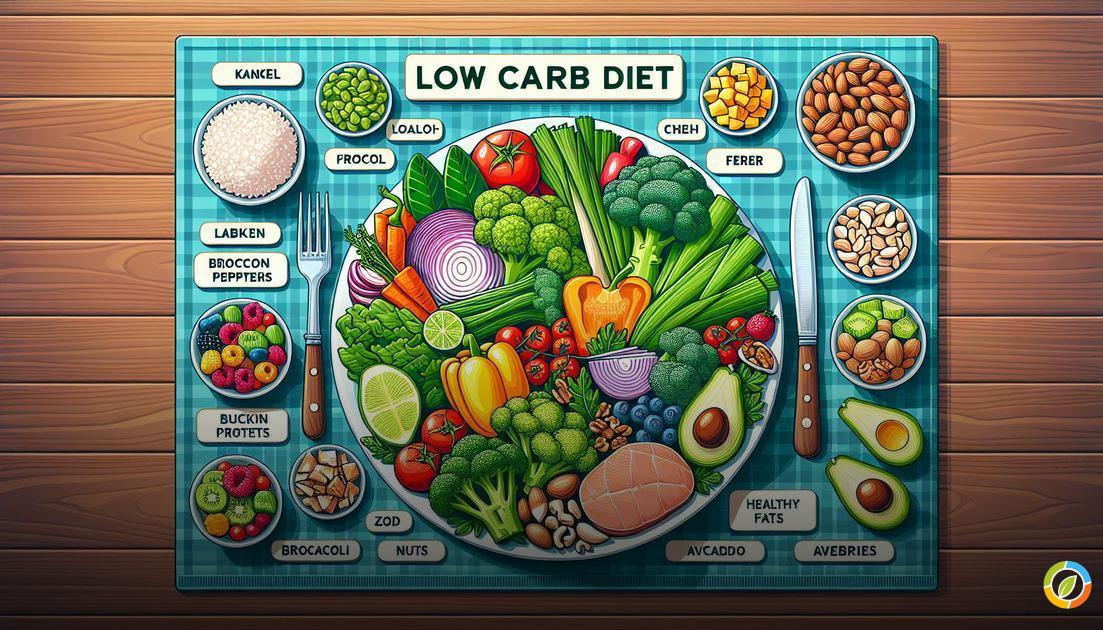Are you considering a low-carb diet to shed some pounds or improve your health? Before diving in, it’s crucial to understand the truths and myths surrounding this popular eating approach. The Truth About Low-Carb Diets: Separating Fact from Fiction will help you uncover the facts and dispel the misconceptions regarding low-carb diets. In this article, we’ll delve into Understanding Low-Carb Diets and How They Work, Debunking Common Myths Surrounding Low-Carb Eating, as well as exploring the Health Benefits and Potential Risks of Reducing Carbohydrate Intake. By the end, you’ll have the information needed to make an Informed Decision on Whether Low-Carb Is Right for You.
Contents
Understanding Low-Carb Diets and How They Work
Low-carb diets are dietary approaches that focus on reducing carbohydrate intake and increasing the consumption of proteins and fats. These diets aim to shift the body’s metabolism from primarily using carbohydrates as fuel to using fats, leading to a state of ketosis.
By limiting the intake of carbohydrates, the body’s insulin levels decrease, which can lead to more stable blood sugar levels and may be beneficial for individuals with insulin resistance or type 2 diabetes.
How Low-Carb Diets Work
-
- When carbohydrate intake is reduced, the body begins to utilize stored fat for energy, leading to weight loss.
-
- Reduced carb intake can lower insulin levels, potentially improving insulin sensitivity and reducing the risk of chronic diseases.
-
- Low-carb diets may help control hunger and cravings, leading to reduced calorie intake.
It’s important to note that not all low-carb diets are the same, and the specific approach can vary, such as the ketogenic diet, Atkins diet, or other low-carb variations.

Debunking Common Myths Surrounding Low-Carb Eating
Low-carb eating has been the subject of numerous myths and misconceptions. Let’s debunk some of the most common ones:
-
- Myth 1: Low-carb diets are all about consuming only meat and fats. This is not true; a balanced low-carb diet includes plenty of vegetables, healthy fats, and lean proteins.
-
- Myth 2: Low-carb diets are unsustainable in the long term. In reality, many people successfully maintain a low-carb lifestyle for years, enjoying improved health and well-being.
-
- Myth 3: Low-carb diets lack essential nutrients. When properly planned, low-carb eating can provide all the necessary nutrients through a variety of food sources.
-
- Myth 4: Low-carb diets are only effective for weight loss. While weight loss is a common benefit, low-carb eating can also improve blood sugar levels, cholesterol, and overall metabolic health.
-
- Myth 5: Low-carb diets are restrictive and boring. On the contrary, there are countless delicious and creative low-carb recipes that can make mealtimes exciting and satisfying.
By debunking these myths, it becomes clear that low-carb eating can be a sustainable, nutritious, and enjoyable way to support overall health and wellness.
Health Benefits and Potential Risks of Reducing Carbohydrate Intake
Reducing carbohydrate intake has been associated with several health benefits, including weight loss, improved blood sugar control, and reduced risk of heart disease. By limiting carbs, many individuals experience a decrease in appetite and an overall reduction in calorie intake, which can lead to successful weight management.
Additionally, low-carb diets have shown to be effective in lowering insulin levels and increasing the body’s ability to burn stored fat for energy. This metabolic state, known as ketosis, can be advantageous for those looking to shed excess body fat.
However, it’s important to be aware of the potential risks associated with reducing carbohydrate intake. Some people may experience initial side effects such as fatigue, dizziness, and irritability, often referred to as the “keto flu.” Furthermore, long-term adherence to very low-carb diets may lead to deficiencies in certain nutrients, such as fiber, vitamins, and minerals.
Moreover, individuals with certain medical conditions, such as kidney disease, may need to exercise caution when significantly reducing their carbohydrate intake, as it could put additional stress on the kidneys.
It’s crucial to approach any dietary changes, including reducing carbohydrate intake, with careful consideration and, ideally, under the guidance of a healthcare professional or a registered dietitian. Making informed decisions about dietary choices is essential for long-term health and well-being.

Making an Informed Decision on Whether Low-Carb Is Right for You
When considering a low-carb diet, it’s essential to gather as much information as possible to make an informed decision.
It’s crucial to understand your own health and dietary needs before embarking on a low-carb diet. Consulting with a healthcare professional or a registered dietitian can provide valuable insights into whether this dietary approach is suitable for you.
Evaluating your lifestyle and food preferences is also important when determining if a low-carb diet is the right choice. If you enjoy a wide variety of protein, healthy fats, and non-starchy vegetables, a low-carb diet may align well with your preferences.
Additionally, considering the potential benefits and risks of reducing carbohydrate intake can help in making an informed decision. Understanding how a low-carb diet may impact your energy levels, weight management, and overall well-being is essential.
It’s important to approach the decision with a balanced mindset, taking into account both the potential advantages and drawbacks of a low-carb eating plan.








0 Comments